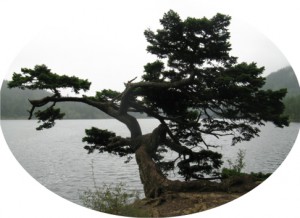I reject the apocalyptic doomsday visions where aliens in huge motherships invade the Earth, zombies are everywhere, and teenagers must fight to the death to entertain an enslaved and terrified populace.
I think we can do better. Humanity has just as much potential to create a more noble future where we need not own a half-dozen assault rifles and a basement full of canned food and bottled water to survive the next attack by lawless road warriors.
How about we consider a future that offers personal hope and the possibility of slowing global warming, creating a healthier environment, saving endangered species —Homo sapiens included — and successfully addressing the issues of climate, social and economic injustice.
If you think you’re ready to think way outside-of-the-box and are open to exploring truly radical ways of restructuring our world, join the extraordinary team in the People of the Change Trilogy now playing at this website.
